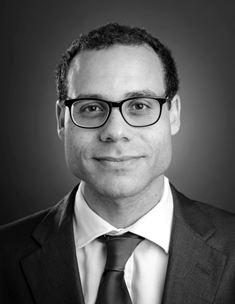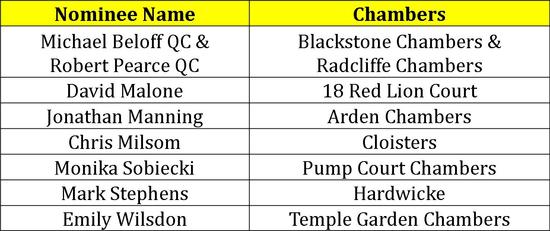
Shyam Popat
Unit caseworker
"Applications to the Bar Pro Bono Unit for advice and representation in immigration and asylum cases have historically never been very large. In fact in 2009, immigration & asylum cases accounted for only 1.88% (19) requests for assistance. These numbers have generally remained stagnant, apart from a slight dip in 2011.
Then the entire legal world changed.
As a result of the Legal Aid, Sentencing and Punishment of Offenders Act 2012, public funding is no longer available in asylum support (except where accommodation is claimed) and immigration cases that do not involve detention, domestic violence, human trafficking or the Special Immigration Appeals Commission.
These changes have had a significant impact on immigration cases referred to the Unit. Immigration cases used to feature in the top 20 most requests for assistance but they now feature in the top 5 month on month. Requests for assistance from 2012 to 2013 saw a 140% increase, compared to a 30.5% overall increase in requests for assistance to the Unit. Indeed the last three months of 2013 saw the same number of applications for assistance compared to the first nine months of the same year. Astonishingly, the Unit has seen a 273% increase in applications in the period January to August 2014 compared to the same period last year.
Legal aid statistics, released by the Ministry of Justice in June 2014 show a 25,277 decrease in the number of cases granted legal aid. Therefore, though our figures are startling it is only a drop in the ocean and the Unit is far from filling the gap left by LASPO.
On a more positive note, the Unit is assisting in 76.3% of all accepted cases have been assisted by a volunteer barrister. The majority of cases have been placed by emails to chambers but the two Court of Appeal cases have both been placed by panel members visiting our secured website. Should you like access to the secured website please email us and we would be delighted to send you details."

From the frontline
Irfan Arif, Casework Manager, West London Equality Centre
"As a specialist human rights and equalities organisation, Ealing Equality Council, in partnership with the University of West London's Community Advice Programme, attends to upwards of 8000 unique inquiries annually. Specialist advice is essential when resolving some really complex issues our clients bring to us, and we have a large pool of volunteer students, solicitors and barristers to call on for some of the areas we give advice on.
When it is apparent that a matter needs to be taken further, the bar pro-bono unit plays a valuable part in providing a link between advice and legal resolutions. Particularly in the area of immigration this has been highly useful, as legal aid cuts have placed real pressures on services, advice and representation. Ealing Equality Council has historically dealt with all manner of immigration matters. At present, through a European research project named SMART (Supported Mediation Assisted Returns Transition), we are currently dealing with an array of immigration issues from irregular migration, people trafficking, bonded labour to family rights of those seeking humanitarian protection.
We are confident that our relationship with the Unit will continue form the basis of mutual success."

The Pupil's View
Ben Amunwa, Pupil barrister, 36 Bedford Row
"Working for the Unit is an excellent way of supporting those who are unable to pay for representation while learning the craft. Immigration law is highly technical, unsettled and often policy-driven. Appeals can be daunting for the unrepresented. The exclusion of most cases from legal aid has placed growing numbers of appellants at the mercy of the tribunal.
The Unit helps, as far as its scarce resources can, by turning this inequality on its head, giving unrepresented appellants access to specialist barristers. I recently represented a family who were refused leave to remain. They appealed on the grounds that removal would infringe their Article 8 rights, based on their youngest daughter’s medical needs. I familiarised myself with the rapidly evolving case law. They won their appeal and will not face a traumatic removal. As the Unit’s essential services come under more pressure than ever before, pupils should join the struggle."

From the Frontline
Manuel Bravo and Eversheds Project
Manuel Project volunteers, Stephanie Dockerty (Eversheds Project Co-ordinator) and Emma Paszkiewicz (Eversheds Senior Analyst)
"We have referred two cases to the Bar Pro Bono Unit and our experience during both of these cases was overwhelmingly positive. We have found the team to be friendly, quick to respond, dedicated and extremely helpful. Because we were new to working with them, they offered us a lot of guidance with completing the form and following the process and they kept us informed of progress throughout. For both of our cases, despite very tight timescales, they were able to find us experienced barristers to represent our clients at their appeal hearings.
Whilst LASPO did not affect Manuel Bravo’s client base directly (legal aid is still available for asylum matters), it did have a significant indirect impact on our work and the sector as a whole. Many large organisations (such as IAS and RMJ) were forced to close after much of their work fell out of scope. Many law centres also fell victim to the cuts. This left huge swathes of clients with no representation and left the third sector in general filling the gap in provision.
The service provided by the Bar Pro Bono Unit is extremely valuable to our clients. The Project acts for clients on a pro bono basis by utilising teams of non-immigration solicitors who prepare the case for our client and submit documents to the court. However as our pro bono lawyers are not immigration trained they are not able to represent clients at the hearing itself. This is where the Bar Pro Bono Unit has proven so important. They have taken cases on where otherwise our clients would be unrepresented and provided tremendous legal support and advice. The fact that very experienced barristers are willing to provide such an important service to our clients free of charge is immeasurable in terms of the value they provide to vulnerable and needy clients."
The success of this partnership and referral to the Unit is best summed by one of our applicants:
"Counsel studied my case well and put all the necessary information together to make the grounds stronger, put all his effort to my case and pushed it forward to the end. I especially thank you to Bar Pro Bono Unit who helped me in my crucial time when I was struggling with my two kids and nobody came forward to help me out and especial thank you to Mr Benjamin Amunwa who guided me all the way to the end. May God Bless him and Bar Pro Bono Unit with prosperity and success all life long."
What we do...
Unit case studies
Stranded
The Unit’s applicant and her daughter came to the UK to join her husband (working on a Tier 1 visa) as dependants. She had previously remained overseas and worked as teacher whilst her husband would return to visit every now and again. However, shortly after arriving in the UK, she was subjected to domestic abuse. Our applicant left the residence and the police placed her in temporary accommodation. She was in a precarious situation: denied benefits due to her immigration status and unable to return home due to threats from her husband’s family. She desperately needed advice relating to benefits, immigration and the immediate family breakdown.
The Unit considered all the strands of her predicament at this time of crisis and sought barristers to assist with advising on her current situation. Counsel from 1 Mitre Court Buildings provided advice in relation to both her immigration status and clarification relating to benefits, whilst another Unit panel member from Field Court Chambers, assisted with initial advice and representation to the start of child proceedings and highlighted the availability of legal aid. Public funding was therefore obtained for further family related matters following the timely advice and the Unit was no longer required.
"Our whole life is here"
Our applicant sought help on behalf of himself and his dependants in regard to an appeal against a decision refusing their application to remain within the UK. The applicant and his wife between them had lived in the UK for 13 continuous years, and their children (aged 9 and 7 years) were both born in this country and had never visited the country of their parents’ birth, Ghana. Our applicant asserted that the refusal of leave was not in line with immigration rules, infringed his human rights, and did not take the best interests of his children into account. The Home Office stated that the necessary requirements for remaining within the UK were not met.
The Unit’s reviewer accepted the application for advice and the case was placed with Counsel at 1 Pump Court. Counsel advised that in fact the applicant and his family had prospects of success of between 50% - 60% and that they would be in a strong position to pursue their appeal.




